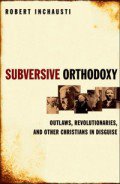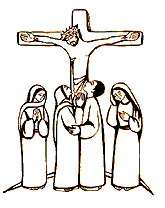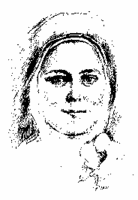Last night during our book discussion we focused on this passage in Jacques Ellul's Anarchy and Christianity (where he's commenting on Jesus' teaching: "You know that those who are supposed to rule over the Gentiles lord it over them, and their great men exercise authority over them. But it shall not be so among you..." Mk 10.42-43):
"But you... it must not be the same among you." In other words, do not be so concerned about fighting kings. Let them be. Set up a marginal society which will not be interested in such things, in which there will be no power, authority, or hierarchy. Do not do things as they are usually done in society, which you cannot change. Create another society on another foundation.
...Jesus is not advising us to leave society and go into the desert. His counsel is that we should stay in society and set up in it communities which obey other rules and other laws.
I like this idea, and think it is an accurate interpretation of Jesus' teaching (and his actions). Although I'm not sure what exactly is meant by "setting up communities."
Often this has been attempted through some structured "intentional" community, where land and property is acquired so Christians can live together in an area that can be sheltered and in which they can control the conditions of their life together. But, from what I've seen, this accumulation of property and using the power of ownership to control their environment is a departure from Jesus' way and inevitably leads to power struggles and the same "exercising authority" that Jesus warned against. And the money and political influence required to acquire and hold onto this property are also constant causes for compromise and deterioration of the community's spirit.
A few lines later Ellul writes, "One might rightly object that setting up independent communities outside the political power was relatively easy in the days of Jesus but it is no longer possible today." But I'm not so sure Jesus "set up [an] independent community." They were not well-defined or organized. They were simply those who chose to follow Jesus at that particular moment; all along the way people continued to join while others left. And they were not independent physically or economically. They stayed in the houses of sympathizers, ate at the tables of friends or those who were curious, and were provided for by anyone who chose to give to them. It seems more like an inspired gathering than a "set up" community, and more dependent than independent.
Also, the boundaries of the community were not clearly defined. There were many who followed and contributed in some manner who were not completely committed to Jesus' way. They followed as far as they felt they could, gave what they were inspired to give, but then pulled back when it got too hard or too dangerous. Jesus did not exclude them or reject their contributions. So they were "in" in a way, but not fully in, not fully reflecting what it meant to be a part of Jesus' community. Actually, there were very few that demonstrated this community life very clearly or consistently. (Perhaps only Jesus himself?)
I'm thinking about this because I'm trying to understand how following Jesus should look, and how to understand my relationship with the people I meet and work with here. Because of the Holy Spirit, I do expect to find some real experiences of Jesus' community wherever I go, including here. But I don't think we can expect to see it among a lot of people all in the same place (since even Jesus' preaching and example couldn't produce that). "The gate is narrow and the way is hard, that leads to life, and those who find it are few." I think I can expect to find many more people who are willing to follow Jesus to some extent, to contribute to his work to some extent, and they should not be rejected although they still might leave us feeling a little lonely when they pull back. That's been my experience here so far.
It helps to see how God uses these "to some extent" folks, and the resources they are willing to share (to some extent), to provide for Jesus' community, his itinerant, inspired gathering (of a few scattered here and there), poor and dependent, who must continually look to their shepherd for care and protection. This allows Jesus' closer followers to live like Jesus and his first disciples, free from the dominating and self-corrupting powers of money and property and politics. It provides a way for them to exist and avoid the spiritual traps of power and wealth. And it also helps others, especially the "to some extent" folks, by providing an example and an inspiration for them, urging them to follow closer. Further, the dependence and scatteredness of Jesus' close followers helps keep them leaning on God while also making them accessible to many others, since they are necessarily mixed in among them.
Like leaven. Like salt. Like lights.
 Heather and I went to the park yesterday afternoon, and ate our lunch under a huge tree of yellow leaves lit in the afternoon sun. Its branches covered us and reached down to almost touch the water of the stream before us. Heather had made tabouleh, a Lebanese salad that she used to eat in France; she'd found the makings for it among the donated food. Very good. Then we lay and read in the sun.
Heather and I went to the park yesterday afternoon, and ate our lunch under a huge tree of yellow leaves lit in the afternoon sun. Its branches covered us and reached down to almost touch the water of the stream before us. Heather had made tabouleh, a Lebanese salad that she used to eat in France; she'd found the makings for it among the donated food. Very good. Then we lay and read in the sun.















 subscribe
subscribe